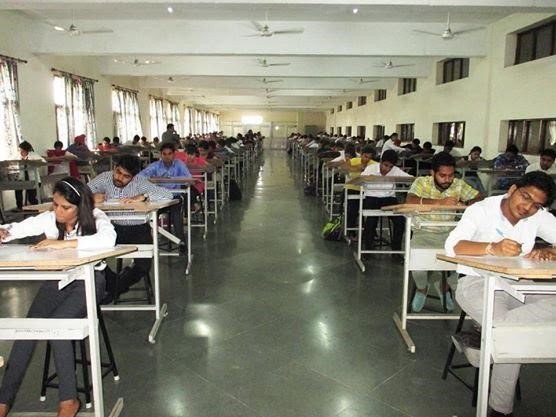The National Eligibility Cum Entrance Test or NEET is an entrance examination for admission to MBBS and BDS courses in the Indian Medical and Dental Colleges (except AIIMS and JIPMER). The National Testing Agency (NTA) conducts the exam. The date of the NEET exam in 2019 is May 05. In this article, we will take a quick look at the syllabus, exam pattern, and talk about the best way to approach NEET preparation.
Source: Wikipedia
Before we talk about the best ways to approach NEET preparation, let’s take a quick look at some important points:
- This is a pen-and-paper exam (offline mode)
- The duration of the exam is 3 hours.
- Further, NEET is conducted in 11 languages. These are English, Hindi, Bengali, Assamese, Gujarati, Kannada, Marathi, Odia, Tamil, Telegu, and also Urdu.
Let’s take a quick look at the syllabus.
NEET Syllabus
The three subjects covered by the exam are Physics, Chemistry, and Biology (including Botany and Zoology). The syllabus is as follows:
Physics
| Class | Topics |
| From Class XI Syllabus | Physical world and measurement |
| Kinematics | |
| Laws of Motion | |
| Work, Energy and Power | |
| Motion of System of Particles and Rigid Body | |
| Gravitation | |
| Properties of Bulk Matter | |
| Thermodynamics | |
| Behavior of Perfect Gas and Kinetic Theory | |
| Oscillations and Waves | |
| From Class XII Syllabus | Electrostatics |
| Current Electricity | |
| Magnetic Effects of Current and Magnetism | |
| Electromagnetic Induction and Alternating Currents | |
| Electromagnetic Waves | |
| Optics | |
| Dual Nature of Matter and Radiation | |
| Atoms and Nuclei | |
| Electronic Devices |
Chemistry
| Class | Topics |
| According to Class XI Syllabus | Basic Concepts of Chemistry |
| Structure of Atom | |
| Classification of Elements and Periodicity in Properties | |
| Chemical Bonding and Molecular Structure | |
| States of Matter: Gases and Liquids | |
| Thermodynamics | |
| Equilibrium | |
| Redox Reactions | |
| Hydrogen | |
| s-Block Element (Alkali and Alkaline earth metals) | |
| Some p-Block Elements | |
| Organic Chemistry- Some Basic Principles and Techniques | |
| Hydrocarbons | |
| Environmental Chemistry | |
| From Class XII Syllabus | Solid State |
| Solutions | |
| Electrochemistry | |
| Chemical Kinetics | |
| Surface Chemistry | |
| General Principles and Processes of Isolation of Elements | |
| p- Block Elements | |
| d and f Block Elements | |
| Coordination Compounds | |
| Haloalkanes and Haloarenes | |
| Alcohols, Phenols and Ethers | |
| Aldehydes, Ketones and Carboxylic Acids | |
| Organic Compounds Containing Nitrogen | |
| Biomolecules | |
| Polymers | |
| Chemistry in Everyday Life |
Biology
| Class | Topics |
| From Class XI Syllabus | Diversity in Living World |
| Structural Organisation in Animals and Plants | |
| Cell Structure and Function | |
| Plant Physiology | |
| Human Physiology | |
| From Class XII Syllabus | Reproduction |
| Genetics and Evolution | |
| Biology and Human Welfare | |
| Biotechnology and Its Applications | |
| Ecology and Environment |
Exam Pattern
There is one paper containing 180 questions and is 3 hours in duration. Further, of these there are:
- 45 questions from Physics
- 45 questions from Chemistry
- 90 questions from Biology which includes Botany and also Zoology
Further, these are objective-types questions each carrying 4 marks. Also, every correct answer fetches you 4 full marks. However, there is negative marking too and every incorrect answer deducts one mark from your total score.
NEET Preparation
With a clear understanding of the syllabus and the exam pattern, let’s now look at the best ways for NEET preparation.
It is important that you do not leave any topic from the syllabus while preparing for NEET. While you can focus more on certain important topics, ensuring that you cover the entire syllabus is critical. Here are some important topics and tips to help you with your NEET preparation:
Physics:
- Usually, theory-based questions are from topics like Heat and Thermodynamics, Magnetism, Modern Physics, Oscillations, etc.
- Also, in the previous years, many questions were from the topic Magnetic Effects of Current.
- For problem-based questions, it is important to think about the formulae first. Also, after solving the problem check if the options have answers in the same system of units. If not, then use conversion rules.
- Some topics that you can focus on are Wave Optics, Rigid Body Dynamics, Semiconductors, Electrodynamics, and also KTG & Thermodynamics.
Chemistry:
- While you might have a preference, ensure that you pay equal attention to both Inorganic and Organic Chemistry.
- Further, understand the concepts of atomic structure, chemical bonding, p/d/f block elements, etc.
- Dedicate some time to solve numerical problems every day.
- Some topics that you can focus on are Carbonyl Compounds, Chemical Bonding, and also Coordination Compounds.
Biology:
- In recent years, many students have found the difficulty level of the Biology section rising.
- For Zoology, you can focus on topics like Biodiversity, Reproductive Health, Polygenic Inheritance, and also Mendelian Disorders, etc.
- For Botany, focus on topics relating to Plat Diversity and Classification.
- Some topics of importance are DNA Replication, Plant Anatomy, Endocrine System, and also Pollination. Further, you might want to stress on topics like Photosynthesis, PAGE Theory, and Digestive, Excretory, and Nervous systems.
Here are some general tips for NEET preparation
- Always keep the syllabus handy to ensure that you don’t miss any topic.
- Assess your areas of strength and weakness before you start preparing. Also, create a study plan and daily schedule to improve on your weaknesses and build on your strengths.
- Try to optimize your time by sticking to your study plan
- Answer some previous years’ question papers as well as sample papers. Further, take up a test series and also attempt mock tests.
- Practice solving problems as much as possible.
- Dedicate time for eating, sleeping, relaxing, and also exercising.
- Keep yourself motivated and optimistic all through your journey
In a nutshell
NEET preparation requires you to approach the syllabus with a comprehensive plan. Approach it methodically and give it your best shot. With persistent hard work and regular practice, we are sure that you will do well in the exam. Good Luck!



